Car batteries are the unsung heroes of our vehicles. They provide the power needed to start the engine, run the lights, and support modern electronic systems. Yet, despite their importance, many drivers overlook their battery’s health until the day their car won’t start. As we move into 2025, with cars featuring more technology than ever, it’s crucial to understand how long do car batteries last and what factors affect their lifespan.
This guide breaks down everything drivers need to know about car batteries, replacement timelines, and tips to extend their life.
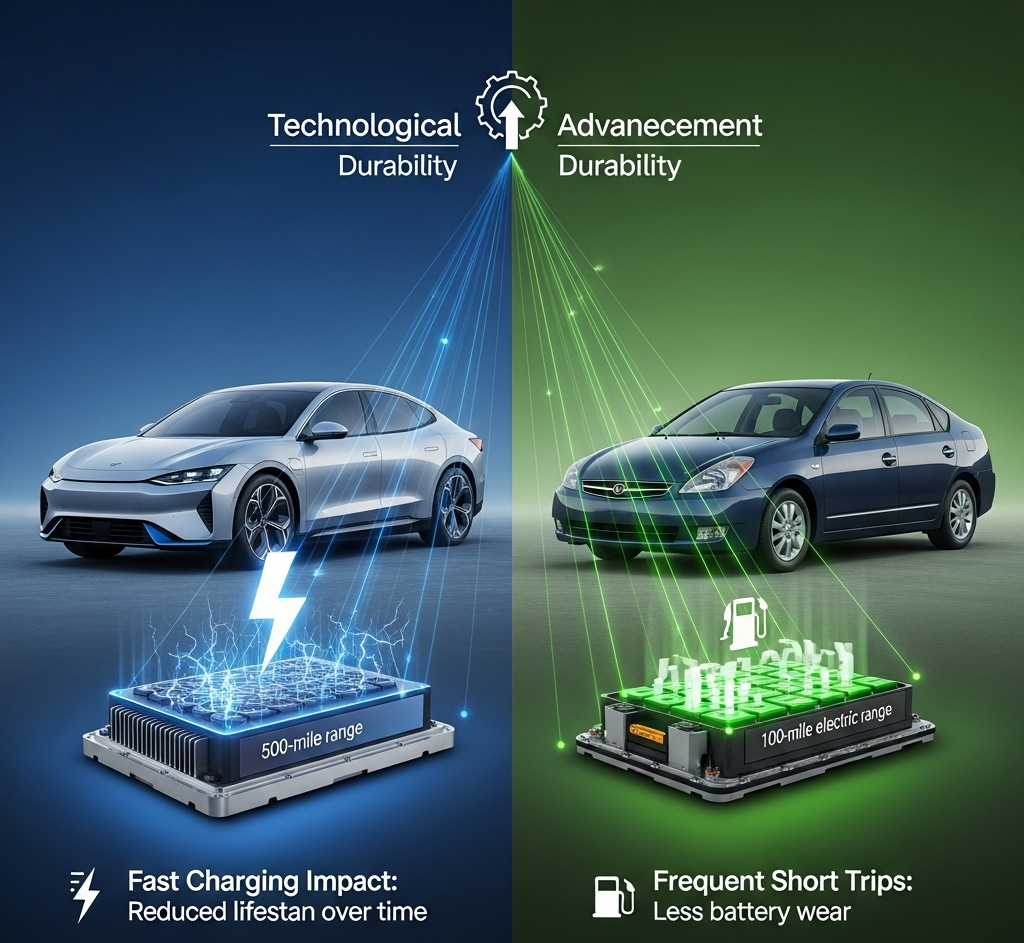
How Long Do Car Batteries Last on Average?
On average, a standard lead-acid car battery lasts 3 to 5 years. However, the actual lifespan can vary widely depending on climate, driving habits, and maintenance. Some batteries may last just two years in harsh conditions, while others can stretch to six years with proper care.
Drivers often ask not only how long do car batteries last but also how long a battery car last when referring to electric or hybrid vehicles. While traditional car batteries power ignition and electronics, EVs and hybrids rely on much larger high-voltage battery packs. These packs can last 8 to 15 years, depending on usage and manufacturer warranties.
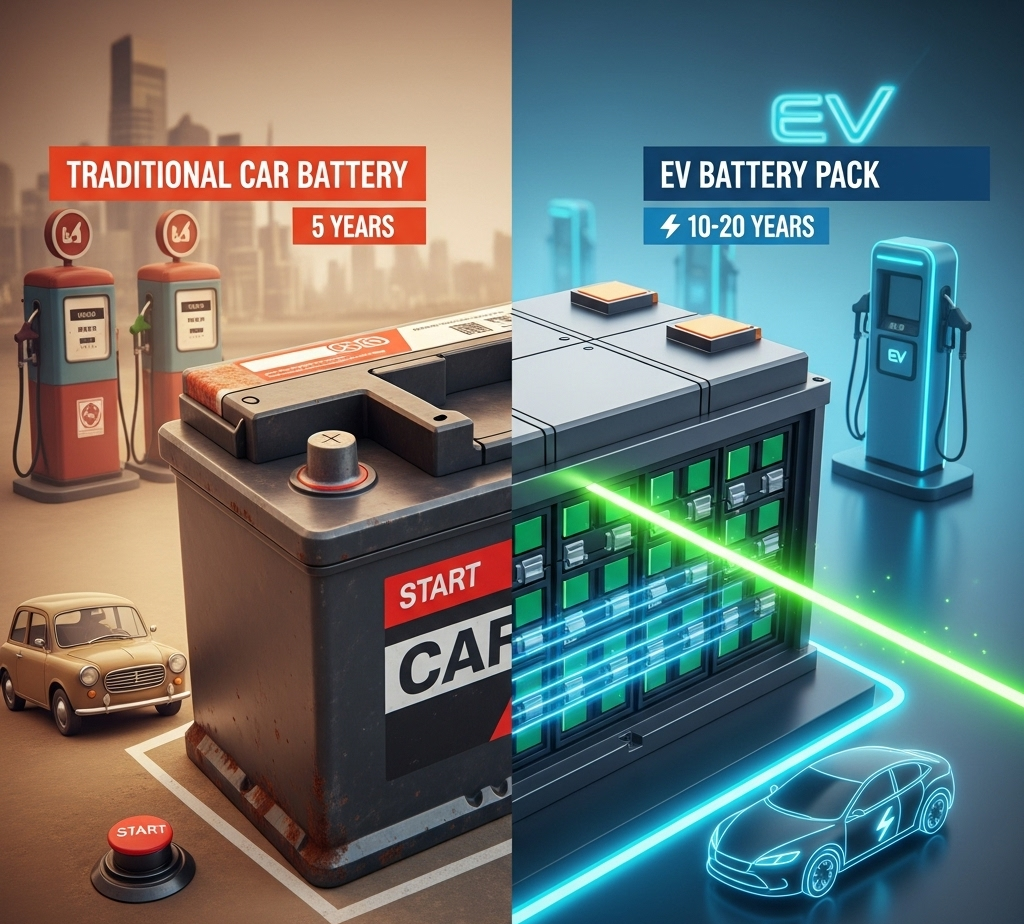
Factors That Affect Battery Life
Several factors influence how long do car batteries last in 2025:
- Climate Conditions
- Extreme heat accelerates fluid evaporation inside the battery, shortening its lifespan.
- Cold weather reduces a battery’s ability to provide sufficient power to start the engine.
- Extreme heat accelerates fluid evaporation inside the battery, shortening its lifespan.
- Driving Habits
- Short trips don’t give the alternator enough time to recharge the battery.
- Long drives at steady speeds help maintain a healthy charge.
- Short trips don’t give the alternator enough time to recharge the battery.
- Electrical Load
- Modern vehicles feature infotainment systems, heated seats, advanced lighting, and sensors. All these put extra demand on the battery.
- Modern vehicles feature infotainment systems, heated seats, advanced lighting, and sensors. All these put extra demand on the battery.
- Maintenance and Care
- Corrosion on terminals, loose connections, and low electrolyte levels can shorten battery life.
- Regular inspections extend lifespan and reduce unexpected breakdowns.
- Corrosion on terminals, loose connections, and low electrolyte levels can shorten battery life.
- Quality of the Battery
- Premium batteries often last longer than cheaper, lower-quality options.
- Premium batteries often last longer than cheaper, lower-quality options.
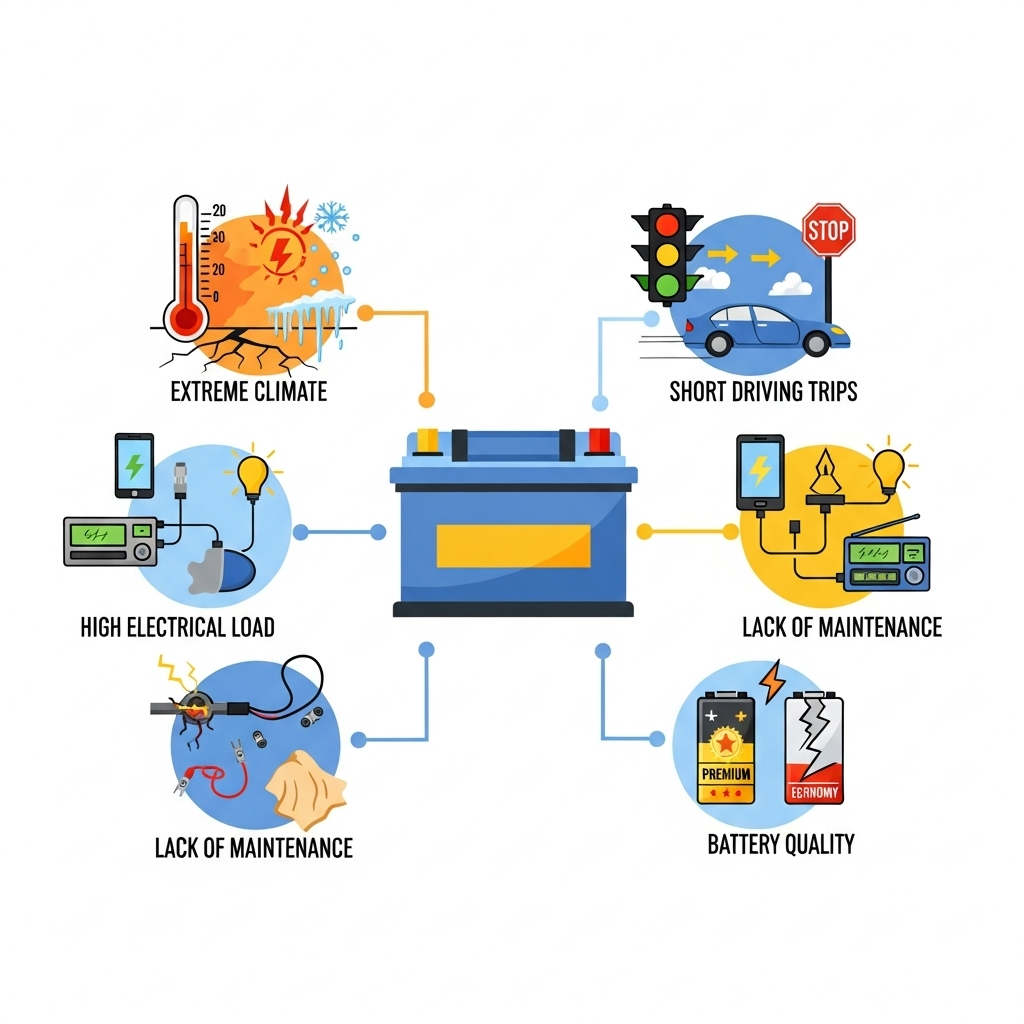
Signs Your Car Battery Is Failing
Knowing the warning signs can help you replace your battery before it leaves you stranded. Common indicators include:
- Slow engine crank when starting
- Dim headlights or flickering interior lights
- Frequent need for jump starts
- Warning lights on the dashboard
- Swelling or corrosion around the battery
If you notice any of these, it’s worth testing your battery’s health at a service center.
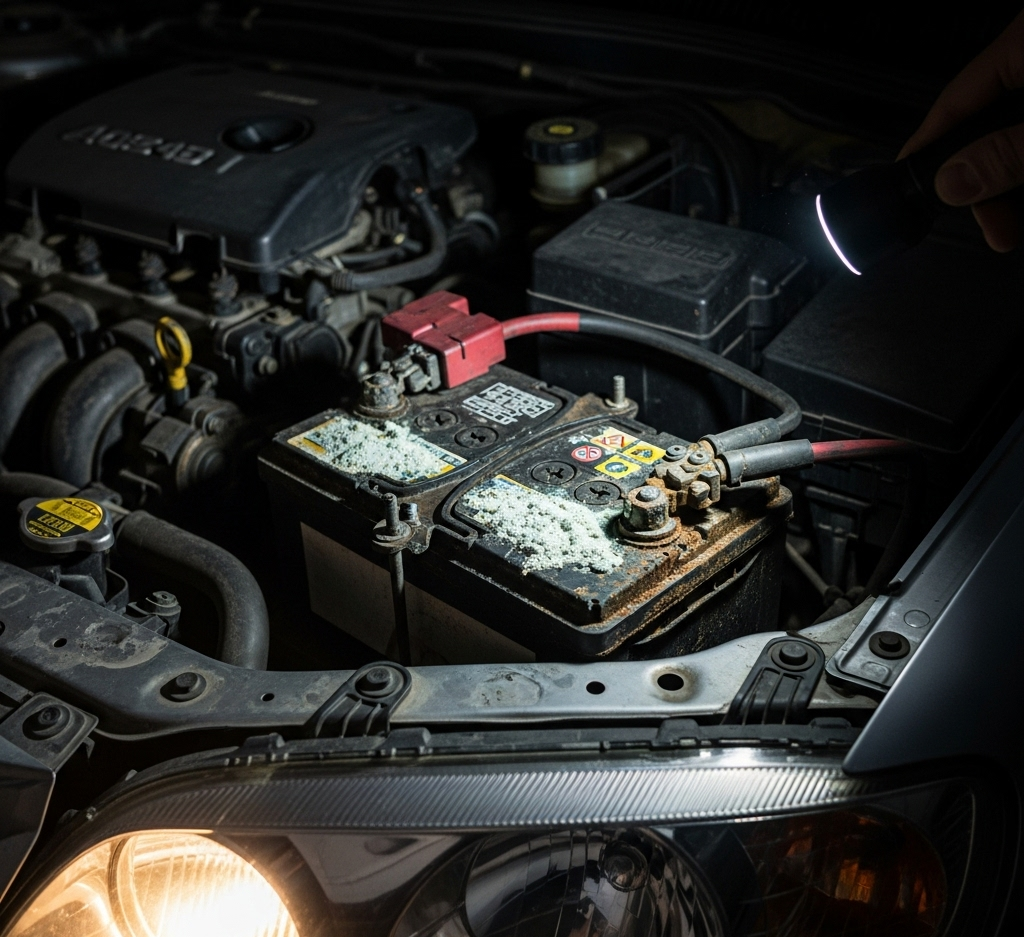
How Long a Battery Car Last (EV & Hybrid Edition)
While traditional car batteries have a shorter lifespan, drivers are increasingly curious about how long a battery car last, especially with electric and hybrid vehicles becoming mainstream in 2025.
- Electric Vehicles (EVs):
EV battery packs generally last 8 to 12 years, with many manufacturers offering warranties up to 100,000 miles or more. - Hybrid Vehicles:
Hybrids use smaller batteries that typically last 8 to 10 years depending on driving style and environment. - Factors Impacting EV Battery Life:
- Frequent fast charging can reduce long-term battery capacity.
- Extreme temperatures affect efficiency.
- Regular use and proper maintenance keep EV batteries healthier for longer.
- Frequent fast charging can reduce long-term battery capacity.
The good news? As technology advances, EV battery packs are becoming more durable and affordable to replace.
Extending the Life of Your Car Battery
Whether you drive a gasoline car, hybrid, or full EV, there are steps you can take to extend battery life:
- Regular Maintenance
Check your battery every 6–12 months for corrosion, leaks, and secure connections. - Drive Regularly
Avoid letting your car sit idle for long periods. Batteries lose charge over time if unused. - Limit Short Trips
Give your alternator enough time to recharge the battery by combining errands into longer drives. - Protect Against Weather
Park in a garage during extreme temperatures. Battery blankets or maintainers can also help in cold climates. - Avoid Excessive Electrical Load
Don’t leave headlights, music systems, or chargers running when the engine is off.
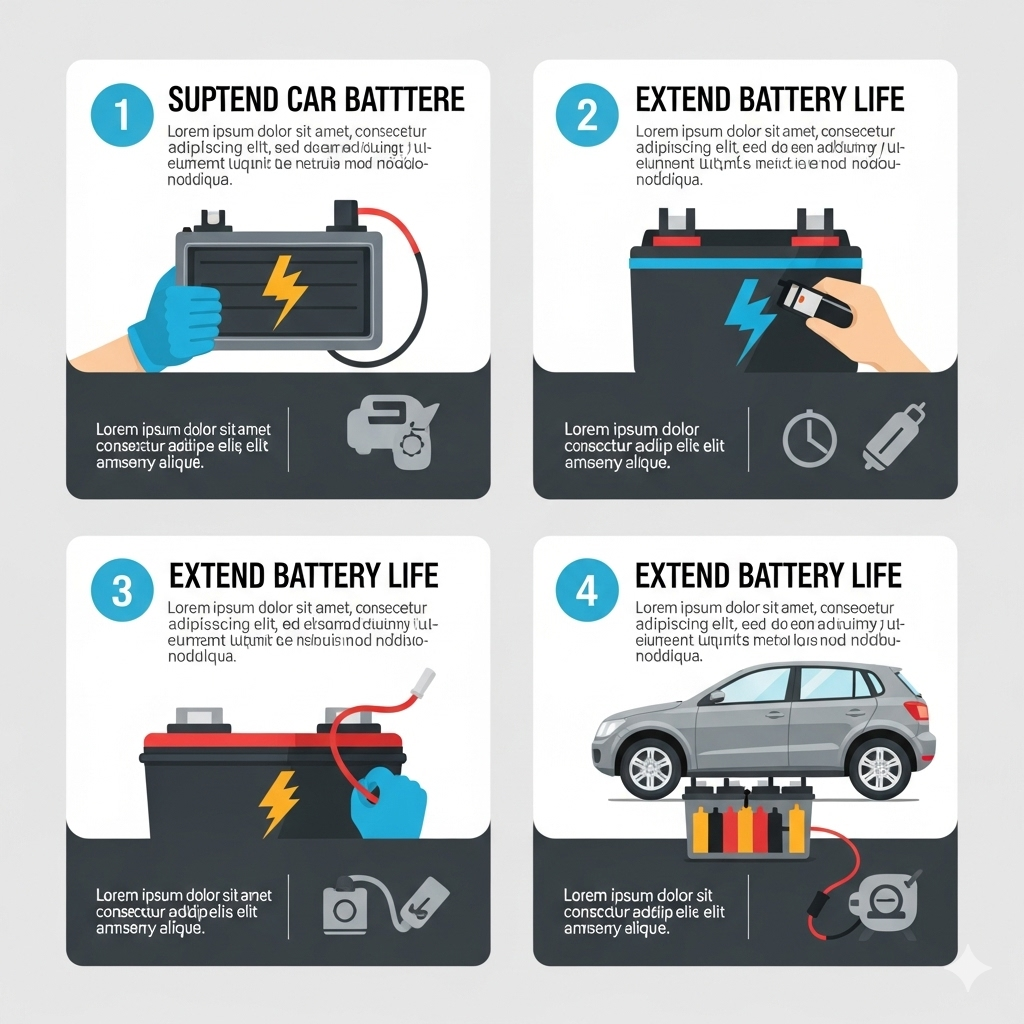
Car Battery Replacement Costs in 2025
The cost of replacing a car battery depends on the type of vehicle:
- Standard Lead-Acid Battery: $100–$200
- AGM (Absorbent Glass Mat) Battery: $200–$400
- EV or Hybrid Battery Packs: $4,000–$10,000 (though prices are dropping as technology improves)
When asking how long do car batteries last, it’s important to consider the cost of replacement and the warranties available. Many manufacturers now offer extended warranties to give drivers peace of mind.
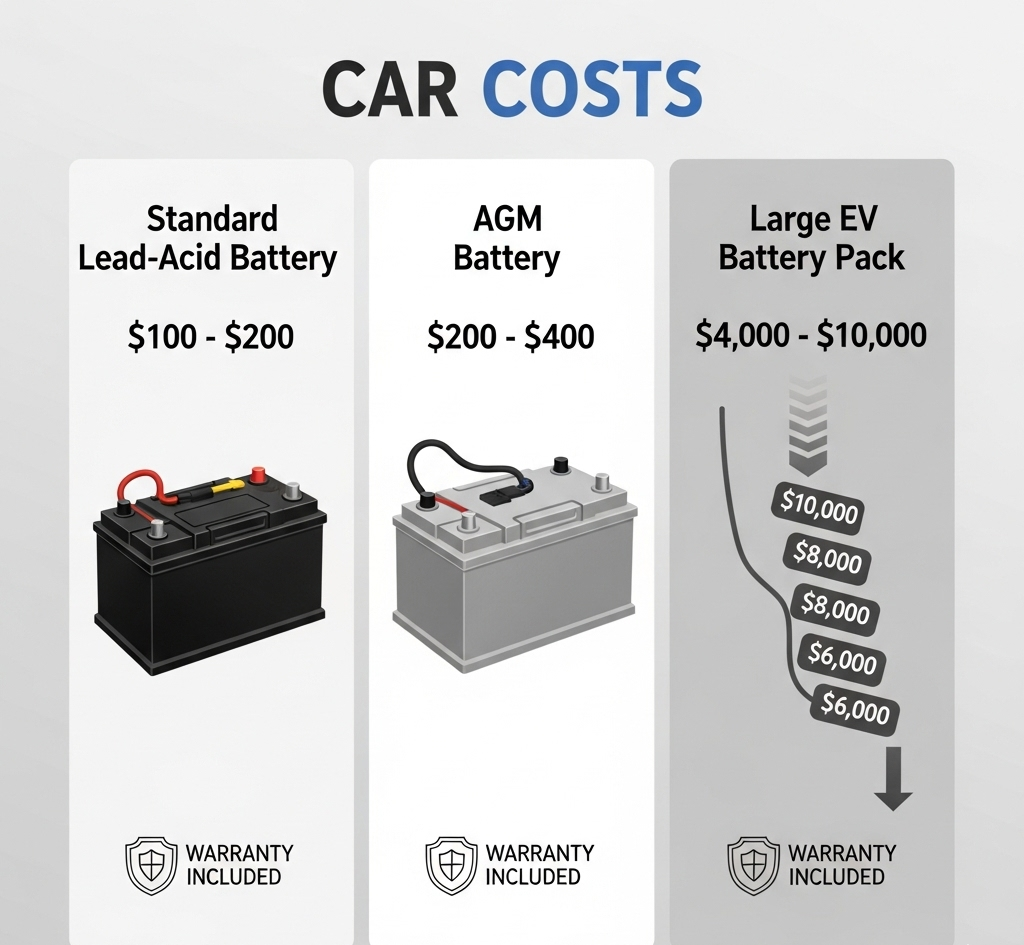
Key Takeaways
- How long do car batteries last? On average, 3–5 years for standard vehicles.
- How long a battery car last? For EVs and hybrids, 8–15 years depending on usage.
- Climate, driving habits, and electrical load are the biggest factors affecting lifespan.
- Regular maintenance and smart usage can significantly extend battery life.
- Battery technology in 2025 is advancing rapidly, offering more reliable and longer-lasting options for drivers.
Conclusion
Understanding how long do car batteries last is essential for every driver in 2025. For traditional vehicles, you can expect about 3–5 years of reliable service with proper care. For electric and hybrid models, the question shifts to how long a battery car last, with lifespans ranging from 8 to 15 years thanks to modern battery technology and manufacturer warranties.
At Nexgenwheels, we emphasize how smart maintenance, better driving habits, and evolving technologies can help drivers maximize battery life and avoid unexpected breakdowns. Whether you’re sticking with gasoline-powered cars or transitioning to electric, one thing is clear: car batteries are more important than ever in keeping us on the move.
I also covered this topic last year—don’t miss my detailed roundup of the Tesla Battery Replacement Cost and Warranty


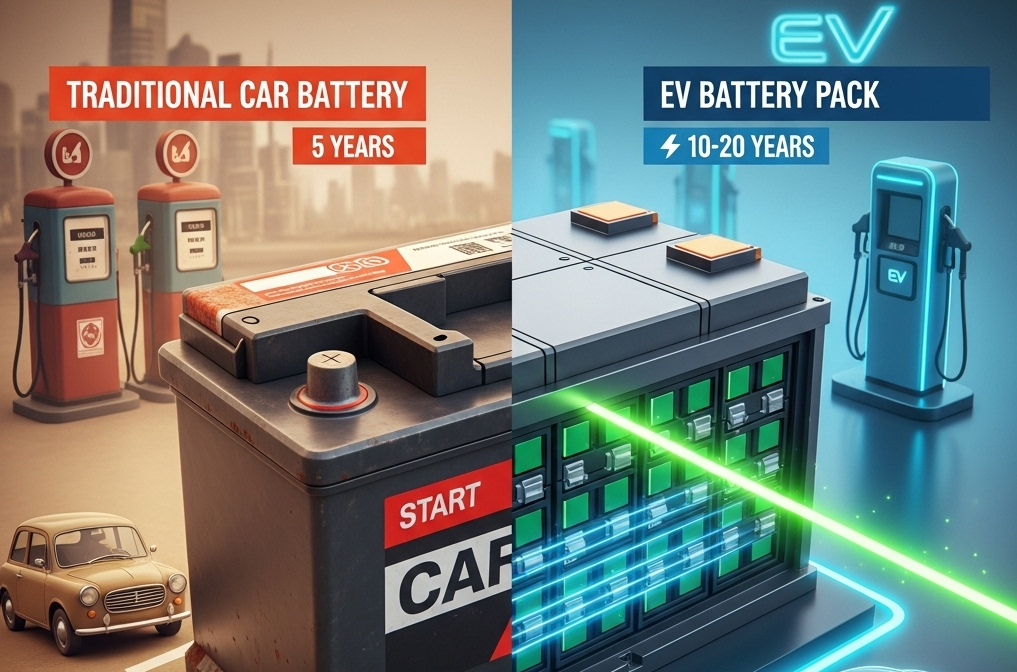
2 Comments
I must say this article is extremely well written, insightful, and packed with valuable knowledge that shows the author’s deep expertise on the subject, and I truly appreciate the time and effort that has gone into creating such high-quality content because it is not only helpful but also inspiring for readers like me who are always looking for trustworthy resources online. Keep up the good work and write more. i am a follower.
This is pure gold. Thank you for sharing your expertise.